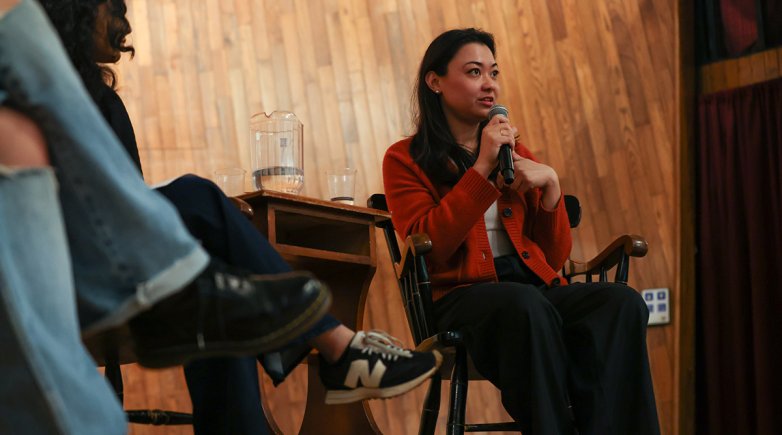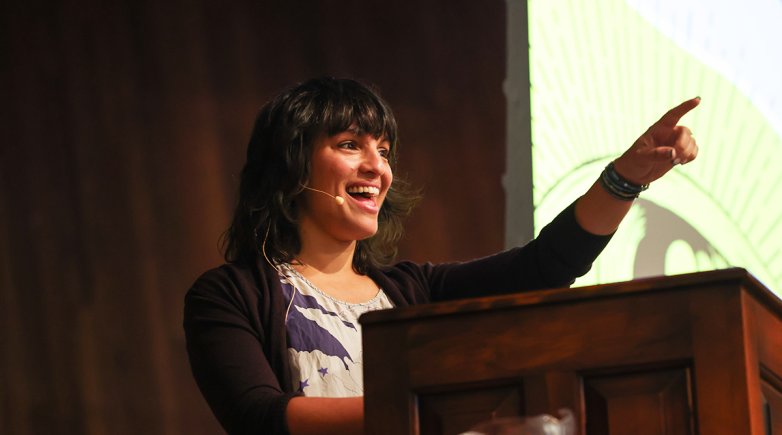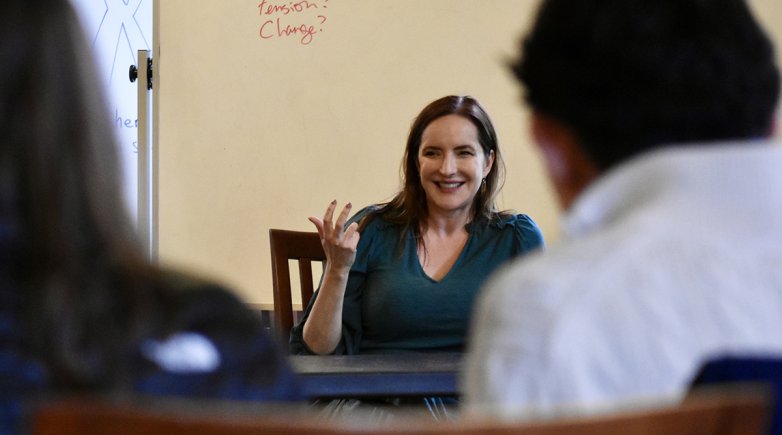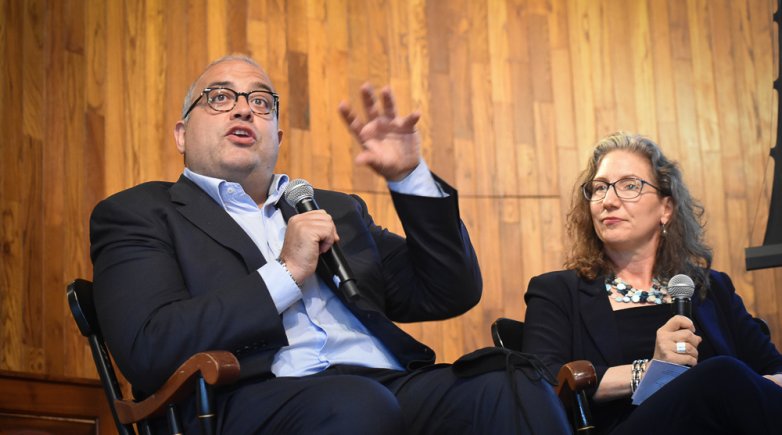'No need to be ashamed': Summit promotes awareness
Writer, artist and advocate Chanel Miller shares her story in assembly during first Sexual Violence Awareness event.
“You may think that sexual assault has nothing to do with you, or you have not encountered it in your own life,” Chanel Miller told students and faculty in the Assembly Hall. “But I promise you there are people in your life…who are trying to gauge who they can trust. The more you educate yourself…the more you’re signaling to people that here’s someone who is ready to receive a story like this.”
Miller is the author of Know My Name, a critically acclaimed memoir about her experience being sexually assaulted on the campus of Stanford University in 2015 and the trial that followed of her attacker, Brock Turner. The student group Exonians Against Sexual Assault invited her to speak at a campus-wide assembly as well as at Exeter’s first Sexual Violence Awareness Summit, a daylong event attended by around a hundred student and adult representatives from eight schools.
In the assembly, EASA co-heads Gigi Lannon ’24, Nupur Malhotra ’24 and Stacy Chen ’24 introduced Miller and asked her questions about her experience and her work.
“How do you so confidently and comfortably write about subjects that are traditionally taboo and shameful?” Lannon asked.
“There’s no need to be ashamed,” Miller said. “If anything, we as a society should feel ashamed that often we are ill equipped to properly handle and receive the stories that survivors are brave enough to tell.”
Though Turner was found guilty of the assault on Miller, which carried a maximum 14-year sentence, he was sentenced in 2016 to only six months in county jail, eventually serving just three months. Miller’s 7,000-word victim impact statement, which she wrote under the pseudonym “Emily Doe,” went viral when it was published on Buzzfeed after the trial. Viewed online by more than 11 million people, it was subsequently read aloud on CNN and from the floor of the House of Representatives, bringing international attention to the issue of sexual assault even before the start of the #MeToo movement.
In 2018, the judge in Turner’s case was recalled amid criticism for the light sentencing, and California subsequently passed a law requiring minimum sentences in sexual assault cases. After remaining anonymous for several years after the trial, Miller came forward to reveal her identity and published her memoir in 2019. “I got to give nuance and texture to my grief, and turn ordinary bad feelings into something very rich,” Miller told the assembly audience.
Know My Name became a New York Times bestseller, won a National Book Critics Circle Award and was named a best book of the year by Time, the Washington Post, the Chicago Tribune, NPR, and People, among others. In 2020, Miller debuted her first art exhibition, “I was, I am, I will be,” in the Wilbur Gallery of the Asian Art Museum in San Francisco.
Miller was the headliner of the summit, but a host of speakers tackled a variety of topics related to sexual violence awareness. The first of its kind, the summit welcomed participants of “all ages, races, genders, sexual orientations and identities who are committed to supporting the understanding of the impact of sexual violence on school culture and willing to engage in creating positive change in their own school community.” In addition to Miller’s assembly talk, Exonians joined attendees from Choate Rosemary Hall, Deerfield Academy, The Hotchkiss School, The Lawrenceville School, Northfield Mount Hermon, Phillips Academy Andover and St. Paul's School for an array of events held in the David E. and Stacey L. Goel Center for Theater and Dance.
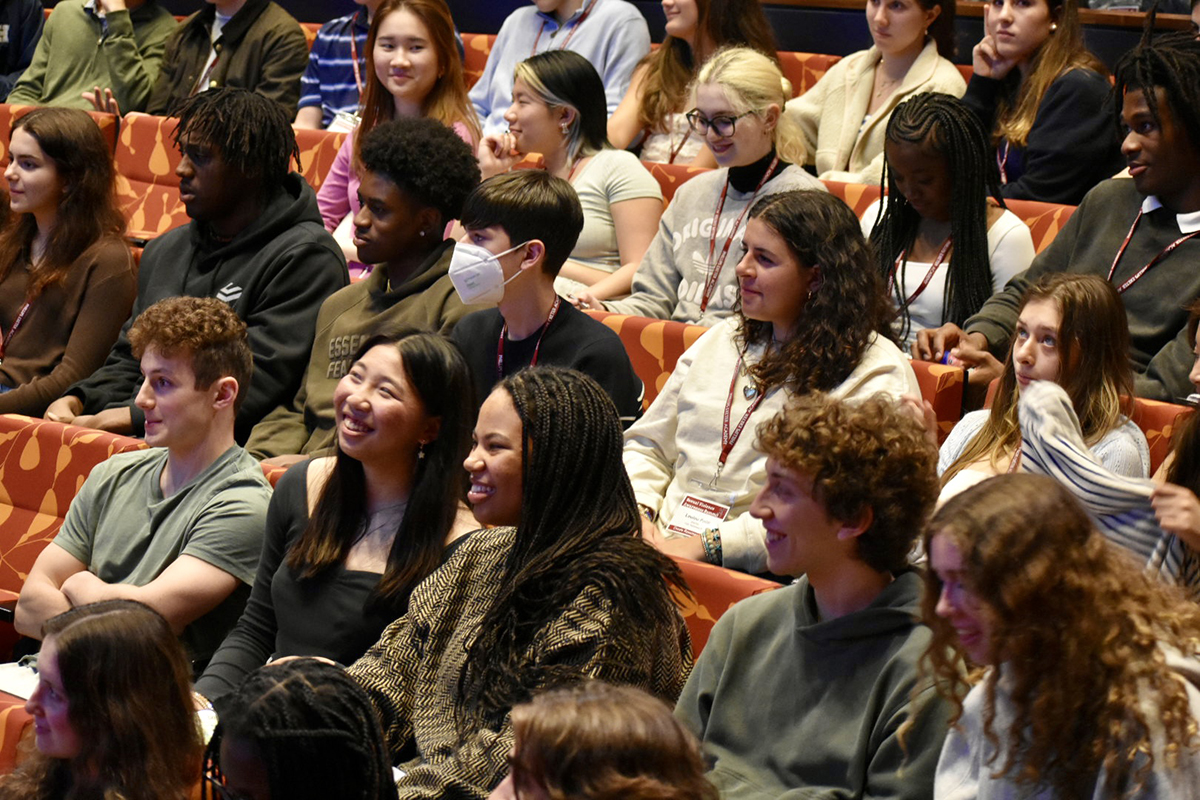
Included in the program’s lineup were Kenyora Parham, chief executive officer of End Rape On Campus, and Shamus Khan, a Princeton University professor and researcher who in 2020 co-wrote with Jennifer Hirsch Sexual Citizens: A Landmark Study of Sex, Power and Assault on Campus. Parham and Khan led a thought-provoking conversation exploring the critical role of intersectionality in shaping the national discourse on and experiences of sexual violence within campus communities.
Mike Domitrz, founder of The Center for Respect, closed the summit by helping attendees summarize what was learned and discover specific skills to make safer and more respectful choices in moments involving sexual decision-making, including intervening for others.
